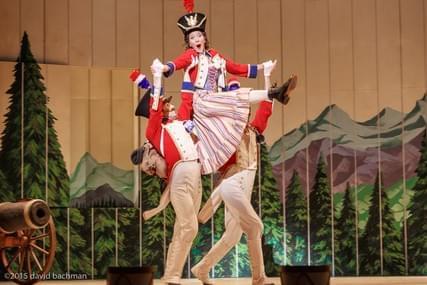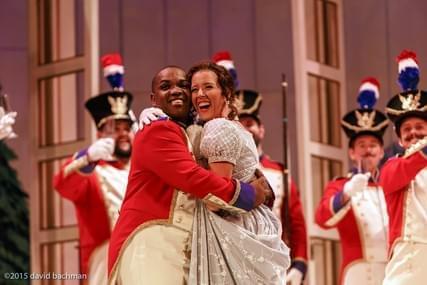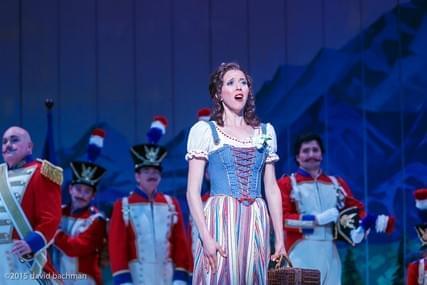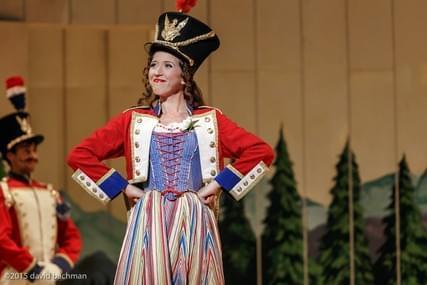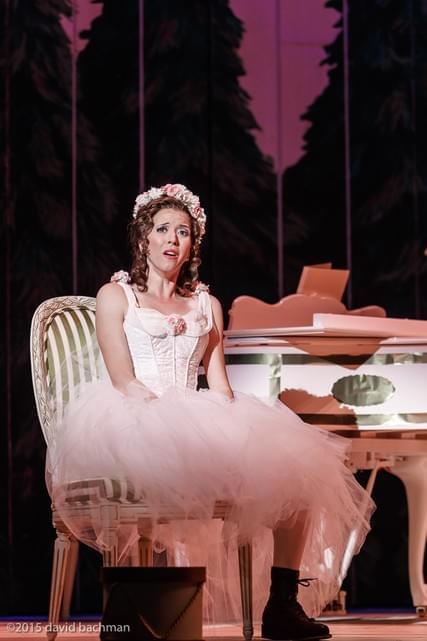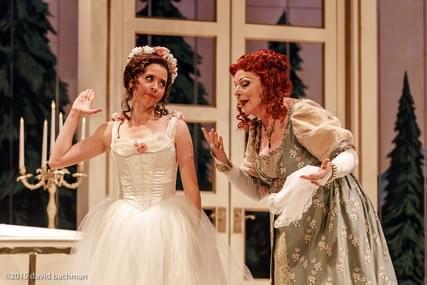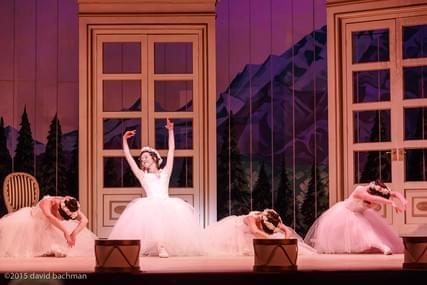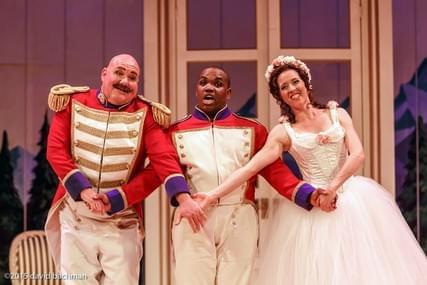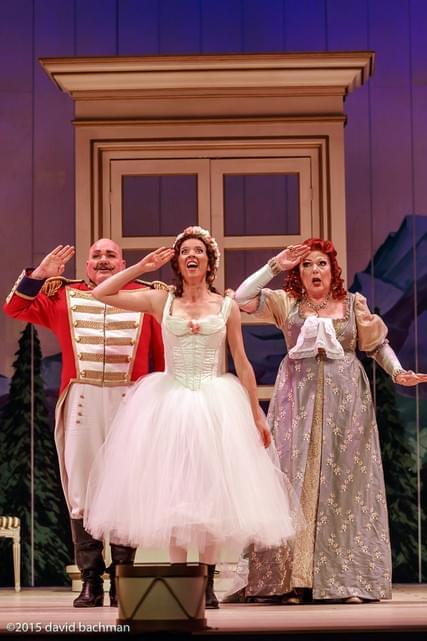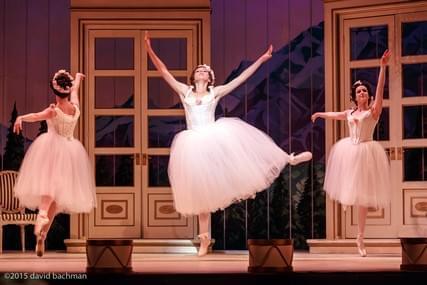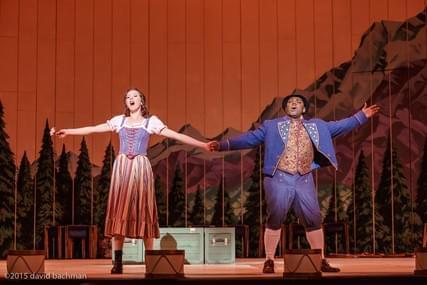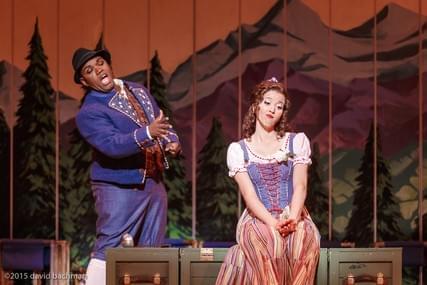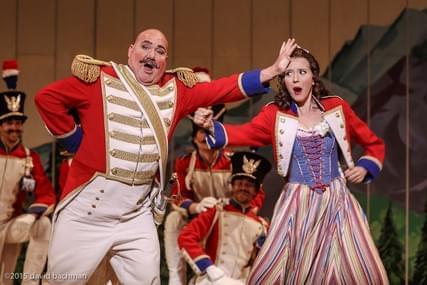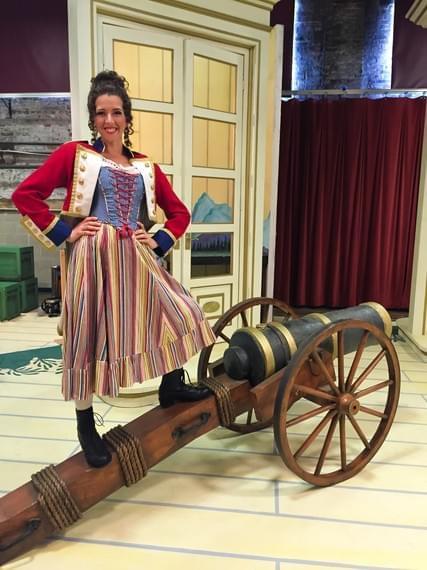Cast
| Tonio | Larry Brownlee | |
| Marie | Lisette Oropesa | |
| Sulpice | Kevin Glavin | |
| Hortensius | Phillip Gay | |
| The Marquise of Birkenfeld | Joyce Castle | |
| Duchess of Krakenthorp | Anna Singer | |
| Corporal | Dimitrie Lazich |
Conductor
Antony Walker
DirectorSeán Curran
CostumesJames Schuette
LightingCindy Limauro
ChorusmasterMark Trawka
About
Donizetti’s DAUGHTER OF THE REGIMENT Concluding the 2013-14 mainstage season is Donizetti’s frothy romantic comedy Daughter of the Regiment (La fille du régiment),May 2 – 10, 2015, a production that will be sung in English. It will feature star tenor Lawrence Brownlee as Tonio, singing those famous nine high Cs in the show-stopping aria “Ah, my friends (Ah, mes amis),” alongside a returning Lisette Oropesa (The Abduction from the Seraglio, 2011) as Marie. Antony Walker conducts the Pittsburgh Opera Orchestra and Chorus.

Running the Pittsburgh Marathon
So word has gotten out that I ran the Pittsbrugh Marathon!
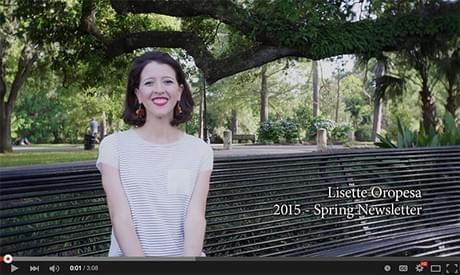
Spring Newsletter - 2015
My Spring 2015 newsletter is now out!

Spring 2015 Newsletter
Spring 2015 Newsletter
Reviews
Pittsburgh Opera Ends Its 76th Season with Donizetti’s “Daughter of the Regiment.”
Of the singers, natural inclination leads us first to Lisette Oropesa, the silvery-voiced Marie, a world-renowned young soprano who already has over 100 performances with the Metropolitan Opera under her belt, and who last night presented more than adequate proof of her well-earned reputation. Lithe, lovely and agile, she was a delight throughout - vocally, visually, and histrionically. In addition to a remarkable voice of thrilling loveliness, she possesses outstanding talent as a comedienne. In the ballet lesson of Act Two, decked out in a flowing, billowy ballerina costume – and the combat boots she wore in Act One – her achievements were on a par with Lucille Ball’s attempt at learning the classical art of dance in the “I Love Lucy” episode we’ve all seen in reruns fifty times or more. In the pretty arias and ensemble numbers alike, her astonishing flights of coloratura were charmingly delightful. For a brief moment at the beginning of Act One, it seemed as if she might have a slight bit of difficulty in smoothly gliding down from her more florid flights, but this quickly disappeared, and she went on to create quite a sensation which was tumultuously approved by the audience at every opportunity.None— George B. Parous • The Pittsburgh Stage
Review: Superb music, well-acted comedy make 'Daughter of the Regiment' a standout
Soprano Lisette Oropesa's Marie was a triumph at the Benedum Center, utterly winning in both the role's vocal challenges and the physical demands of Curran's staging. Her voice is wonderfully suited to the role, warm and rounded in tone but also pure, and sparkling in coloratura. “The Song of the Regiment” started with a lovely vocal flourish, then proceeded with irresistible elan. Oropesa proved a master of physical comedy throughout, especially in a dance lesson Curran interpolates during the orchestra entr'acte after intermission. In the first act, we meet Tonio, Marie's guy, who joins the regiment to be with her. But at the end of that act the Marquise of Berkenfeld claims Marie as her “niece.” The second act takes place at the castle of the Marquise, who is providing Marie with lessons to add refinement appropriate for an arranged aristocratic marriage. The choreography for the four dancers gives Marie klutzy moves right out of a routine by Les Ballets Trockadero de Monte Carlo. Oropesa offered a perfect lesson in comic gestures and timing.None— Mark Kanny • Pittsburgh Tribune-Review
Review: Heavyweight singing anchors Pittsburgh Opera's 'Daughter of the Regiment'
Soprano Lisette Oropesa returned to Pittsburgh Opera for her first performances of the title role. She made for a humorous, charming Marie, and, while not the most nimble, her dulcet voice showed shimmers of brilliance in high notes and trills. Her unceasing energy in the role’s dramatic and vocal acrobatics explained her impressive plans to run the Pittsburgh Marathon mere hours after the curtain dropped.None— Elizabeth Bloom • Pittsburgh Post Gazette
Opera News - La Fille du Régiment
For her own part, Oropesa’s Marie lacked neither virtuosity nor personality. With solid high notes, accurate coloratura and an endless supply of golden-age trills (I stopped counting after five), this endearing artist ran a vocal marathon that might have paralleled the physical feat she was preparing to run in Pittsburgh Marathon the next morning. Apparently untiring, she looked and sounded as fresh at the opera’s conclusion as she had been at her first entrance. With strikingly clear diction, she negotiated with facility not just the role’s vocal fireworks, but also the legato and tenderness of Marie’s slower solos, known in the original French as “Il faut partir” and “Par le rang.”None— Robert Croan • Opera News
Performance History
Lisette has given 16 performances as Marie.



